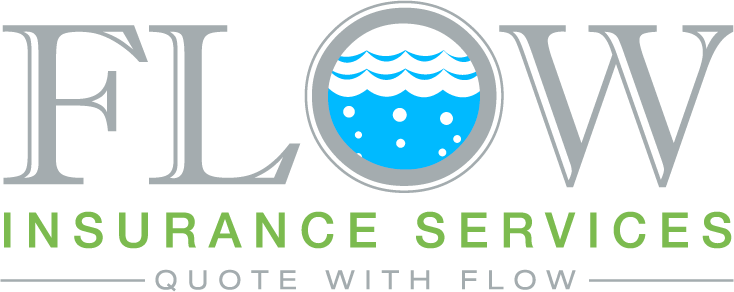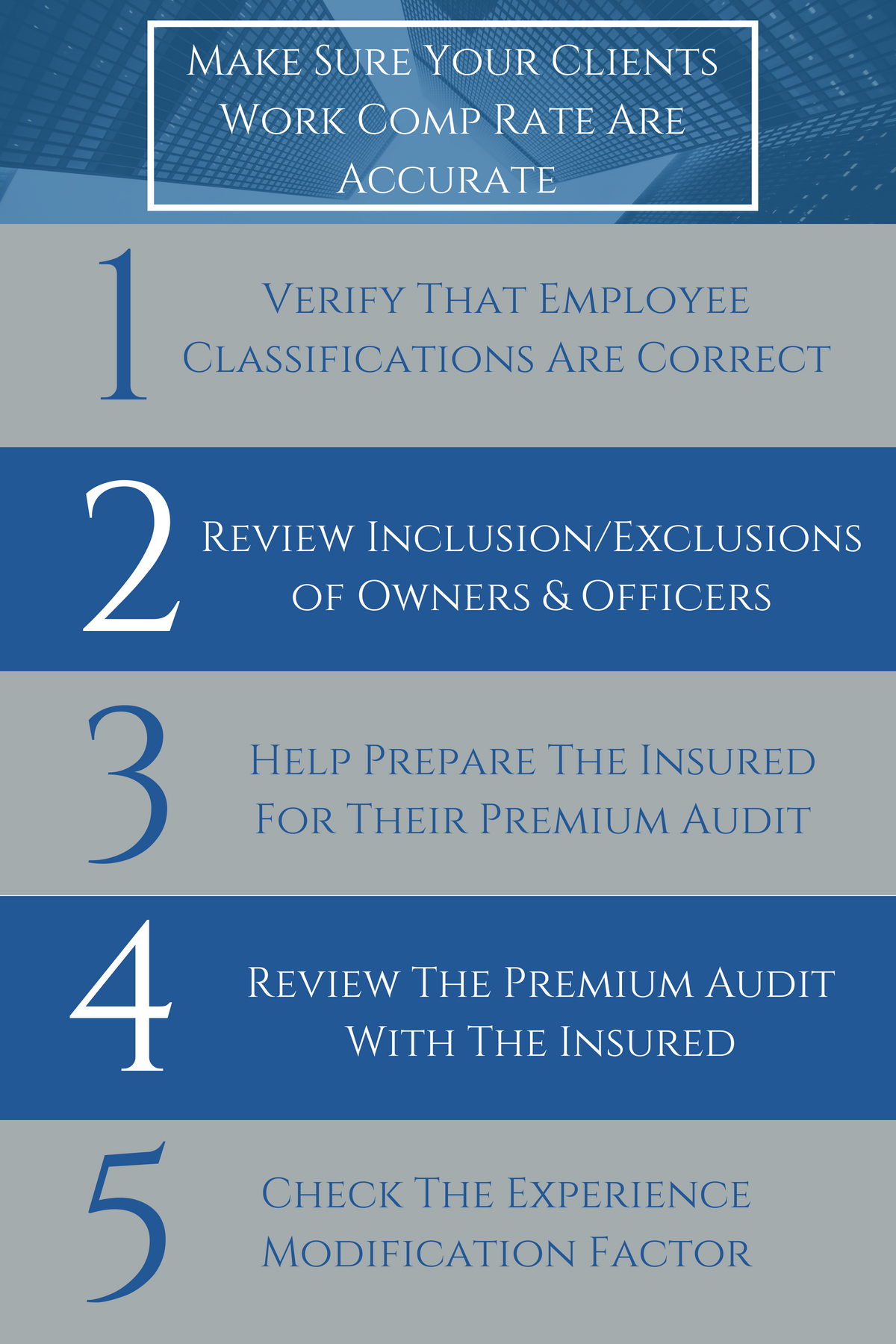22 Jun How Insurance Agents can help Clients Ensure Their Workers Compensation Costs are Accurate

855-368-5502
How Insurance Agents Can Help Clients Ensure Their Workers Compensation Costs Are Accurate
By: Adam Matheny
Verify the Employee Classifications are Accurate
With the hundreds of job classifications available, some having only minor differences, it is common for class code mistakes to occur. Low risk clerical employees are often misclassified into higher rated classifications. These mistakes can easily pass from agent to agent as one copies over incorrect information from a policy to a quote. It is a good practice to verify the job duties of the individual employees to ensure the insured is not paying more than they should. Additionally, if the insured is paying less than they should, this may be revealed at the audit causing the insured to have a large earned premium.

Review Inclusion/Exclusions of owners/officers
Different business entity types (sole prop, corporation, partnership, LLC) have different automatic inclusion/exclusion rules for each state. It is important to verify the policy was issued with the correctly requested inclusion/exclusion forms as this is often overlooked. Agents should also be careful when amending the entity type on a policy as this impacts the inclusion/exclusion of owners/officers.
It is also important to make sure the agent looks up the rules for the state the owner/officer resides in, not the state in which the business operates. Lastly, this is one of the most consistent errors of insurance companies after audits – wrongly including owners/officers that were previously excluded. Agent should make sure the inclusion/exclusion status is accurate post-audit.
Help Prepare Insured’s for their Premium Audit
An agent should actively prepare the insured for the premium audit. It is quite common that insureds become frustrated with the audit process and simply do not follow through with it. This can lead to inaccurate premium increases and, in some cases, non-renewal of the policy. The agent should also make sure that the insured not only responds to the audit but that they send a descriptive enough response. It is quite common that if the insured only provides payroll without job descriptions that all payroll is placed in the highest rated class code.
Review the Premium Audit with the Insured
Once the audit is complete, it is crucial the agent reviews the audit. Simple errors can often be caught, such as the inclusion/exclusion errors mentioned previously. The agent can also often spot signs that the insured did not provide enough detail so get an accurate audit if all payroll is placed in the highest rated class code.
Additionally, the agent will want to review any changes with the insured, such as class code changes and entity type changes. Class code changes can result in premium increases or decreases. While a decrease may seem like a good thing up front, if the next years audit finds this to be inaccurate, the insured may be charged additional premium at the upcoming audit while also seeing an increase at their next renewal.
Another common change found during the audit is the entity type, such as a sole prop forming an LLC. Entity type changes will impact inclusion/exclusion of owners/officers automatically and the insurance company often times will not advise the insured that new signed forms may be needed to remain included/excluded and may automatically change the owner/officer inclusion status.
Check the Experience Modification Factor
Experience rating modification factors offer unique credit modifications to insureds on an individual basis. It is important that the agent verify the experience mod on the policy matches the insured’s actual experience mod assigned by the NCCI. At new business, the agent will want to make sure to provide the insurance company with a copy of the experience modification worksheet to get an accurate quote. Experience mods can and do change often. The agent should also make sure that as the experience mod changes via NCCI, that it also changes on the insurance policy.
Experience mods often fall off insurance policies incorrectly during named insured changes. It is crucial that agents provide ERM-14’s when requests (or state specific guidelines) to show that the ownership change still qualifies for the prior experience mod. Without doing so, the experience mod will fall off the policy.

